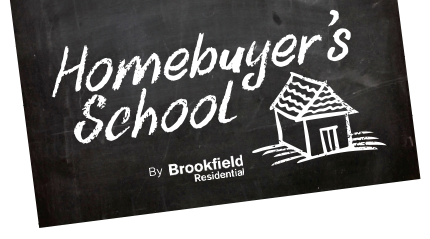Planning to buy a condo but wondering how the condo board will affect you and your new home? In this episode, we discuss the role of the condo board, how to join, options if you disagree with their decision, and impacts to condo building maintenance and amenities.
Subscribe to our YouTube channel:
Prefer to listen?
Transcription:
Karl Yeh:
Hi everyone, welcome to another edition of Homebuyer's School, today I'm joined by Karen McDonald, community manager with Brookfield Residential. The question we're going to answer is:
What's the role of a condo board?
So Karen, we hear about the condo board, so what does it do?
Karen McDonald:
Well the condo board is meant to be a voice for all of the home owners.
So when a condo board comes together, a number of board members are elected [00:01:00] by the home owners to be the representatives as the collective. So they're there to ensure and enforce bylaws, maintenance of the common property.
To ensure that everything still is maintained, and value of property is always there for all the home owners.
How do you join a condo board?
Karl Yeh:
So how do you get on this board? Do you just put your name in the hat and say "I want to be on the board," and they have a special election, and that's pretty much it?
Karen McDonald: That's essentially it.
Karl Yeh: Okay.
Karen McDonald:
A home owners board [00:01:30] when they first convene, for a new development, it would be somebody electing them, or nominating them to a board member, and then it would be voted upon.
You have voting shares within all home owners, the unit factor share goes towards their voting shares. So everybody as a collective would determine who is going to be a part of that board.
On a go forward basis it is a yearly position, so it can [00:02:00] happen, if you want to be a part of your board the next year, make sure that you put yourself forward for it.
Karl Yeh:
So, is there a president, vice president, in the same kind of role as a separate committee?
Karen McDonald:
There is, there would be a chair of the board that would kind of be the director of all the meetings, and ensuring that the meetings happen on a regular basis.
That any kind of issues are [00:02:30] brought up and taken care of.
Karl Yeh:
What happens if you're one of the home owners that disagrees with a decision that a condo board does? Is there some sort of appeal process?
Is there some sort of way that maybe the majority can't suppress the minority kind of issue?
Karen McDonald:
Well it is a majority rules kind of situation.
You can always put forward any kind of grievances or complaints, or any concerns that you may have to the board, and bring it up at meetings, of course.
You have a voice, [00:03:00] that's what the home owners board is meant to hear. But any kind of changes that would happen would have to be a majority rules kind of situation.
Any changes would have to have a 75% agreement between home owners, 75% have to agree to change any kind of bylaws, or make any big changes.
But the benefit to that as well too is that you need to have the majority rules in that, so you don't have one offs where people are making crazy [00:03:30] changes just on their own personal opinions.
Do you have to pay a fee to keep the board active?
Karen McDonald: No.
Karl Yeh: So are your condo fees going towards the management of the board?
Karen McDonald: No, home owners it's a volunteer thing.
Karl Yeh: Okay.
Karen McDonald:
Being of a responsible home owner, if you want to be part of that board, you can choose to be part of the board.
You do dedicate some of your time and your effort to that, there is some work involved in it. But [00:04:00] a lot of people want to have that voice, want to be a part of that, are willing to put that additional work into it.
But no, the home owners board, the board members themselves do not get paid. Management fees are made directly to the management company for their services they provide.
Karl Yeh:
And how much influence does the board actually have on the management company?
Karen McDonald:
They have ultimate decisions over the management company, because the home owners as a collective [00:04:30] can decide who they employ to manage their development.
And they have ultimately the decision whether they continue on with the one that as originally set forward, or they go in a different direction and employ a different management company.
So home owners have all of the decision making power in that process.
Karl Yeh:
So isn't just say the management company essentially does whatever they want and the board this advisory group, it's actually the management company kind [00:05:00] of reports to it.
Karen McDonald:
It's absolutely that way, it's the opposite of what people may think. Home owners have the ultimate choice in who they employ.
Karl Yeh:
Perfect. Thank you very much Karen, thank you very much for joining us, and we'll catch you next time.
Your turn:
Let us know if you have additional condo questions or home buying questions that we can answer by submitting them in the comments section below.
Homebuyer's School publishes new content weekly so subscribe or check back regularly for the latest information, strategies and tips from homebuying experts.
About Karen McDonald:
This is my 12th year with Brookfield Residential. I have been involved in 8 sites now with 7 in multi-family and 1 Single Family. I received my certification as a New Home Sales Professional from PHBIA in 2008.






















